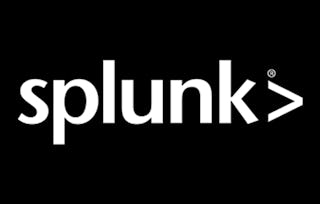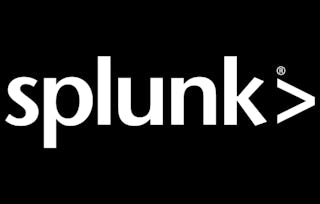In this course, you will learn how to calculate co-occurrence between fields and analyze data from multiple datasets, increase your knowledge of searching and learn how to work with multivalue data. In addition, you will learn tips and tricks to improve search performance using accelerations.

Splunk Search Expert 103

Splunk Search Expert 103
This course is part of Splunk Search Expert Specialization

Instructor: Splunk Instructor
3,102 already enrolled
Included with
47 reviews
What you'll learn
Use specific commands to calculate co-occurrence between fields and analyze data from multiple datasets.
Understand how components of a search are broken down and processed across the Splunk data pipeline and how to troubleshoot searches.
Manipulate, evaluate, and analyze multivalue data and create multivalue fields in search with multivalue eval commands and functions.
Improve search performance by understanding search best practices, accelerating repots and data models to optimize frequently accessed data.
Skills you'll gain
Details to know

Add to your LinkedIn profile
4 assignments
See how employees at top companies are mastering in-demand skills

Build your subject-matter expertise
- Learn new concepts from industry experts
- Gain a foundational understanding of a subject or tool
- Develop job-relevant skills with hands-on projects
- Earn a shareable career certificate

There are 4 modules in this course
This module is for users who want to learn how to calculate co-occurrence between fields and analyze data from multiple datasets. Topics will focus on the transaction, append, appendcols, union, and join commands.
What's included
10 videos2 readings1 assignment
This eLearning module gives students additional insight into how Splunk processes searches. Students will learn about Splunk architecture, how components of a search are broken down and distributed across the pipeline, and how to troubleshoot searches when results are not returning as expected.
What's included
9 videos2 readings1 assignment
This module is for users who want to become experts on searching and manipulating multivalue data. Topics will focus on using multivalue eval functions and multivalue commands to create, evaluate, and analyze multivalue data.
What's included
20 videos2 readings1 assignment
This module is for users who want to improve search performance. Topics will cover how search modes affect performance, how to create an efficient basic search, how to accelerate reports and data models, and how to use the tstats command to quickly query data.
What's included
7 videos2 readings1 assignment
Earn a career certificate
Add this credential to your LinkedIn profile, resume, or CV. Share it on social media and in your performance review.
Instructor

Offered by
Explore more from Security
 Status: Free Trial
Status: Free TrialSplunk Inc.
 Status: Free Trial
Status: Free TrialSplunk Inc.
 Status: Preview
Status: PreviewThe Hong Kong University of Science and Technology
Why people choose Coursera for their career

Felipe M.

Jennifer J.

Larry W.

Chaitanya A.
Learner reviews
- 5 stars
78.72%
- 4 stars
17.02%
- 3 stars
2.12%
- 2 stars
2.12%
- 1 star
0%
Showing 3 of 47
Reviewed on Jun 23, 2022
Excellent materials, I totally recommend this course

Open new doors with Coursera Plus
Unlimited access to 10,000+ world-class courses, hands-on projects, and job-ready certificate programs - all included in your subscription
Advance your career with an online degree
Earn a degree from world-class universities - 100% online
Join over 3,400 global companies that choose Coursera for Business
Upskill your employees to excel in the digital economy
Frequently asked questions
To access the course materials, assignments and to earn a Certificate, you will need to purchase the Certificate experience when you enroll in a course. You can try a Free Trial instead, or apply for Financial Aid. The course may offer 'Full Course, No Certificate' instead. This option lets you see all course materials, submit required assessments, and get a final grade. This also means that you will not be able to purchase a Certificate experience.
When you enroll in the course, you get access to all of the courses in the Specialization, and you earn a certificate when you complete the work. Your electronic Certificate will be added to your Accomplishments page - from there, you can print your Certificate or add it to your LinkedIn profile.
Yes. In select learning programs, you can apply for financial aid or a scholarship if you can’t afford the enrollment fee. If fin aid or scholarship is available for your learning program selection, you’ll find a link to apply on the description page.
More questions
Financial aid available,


